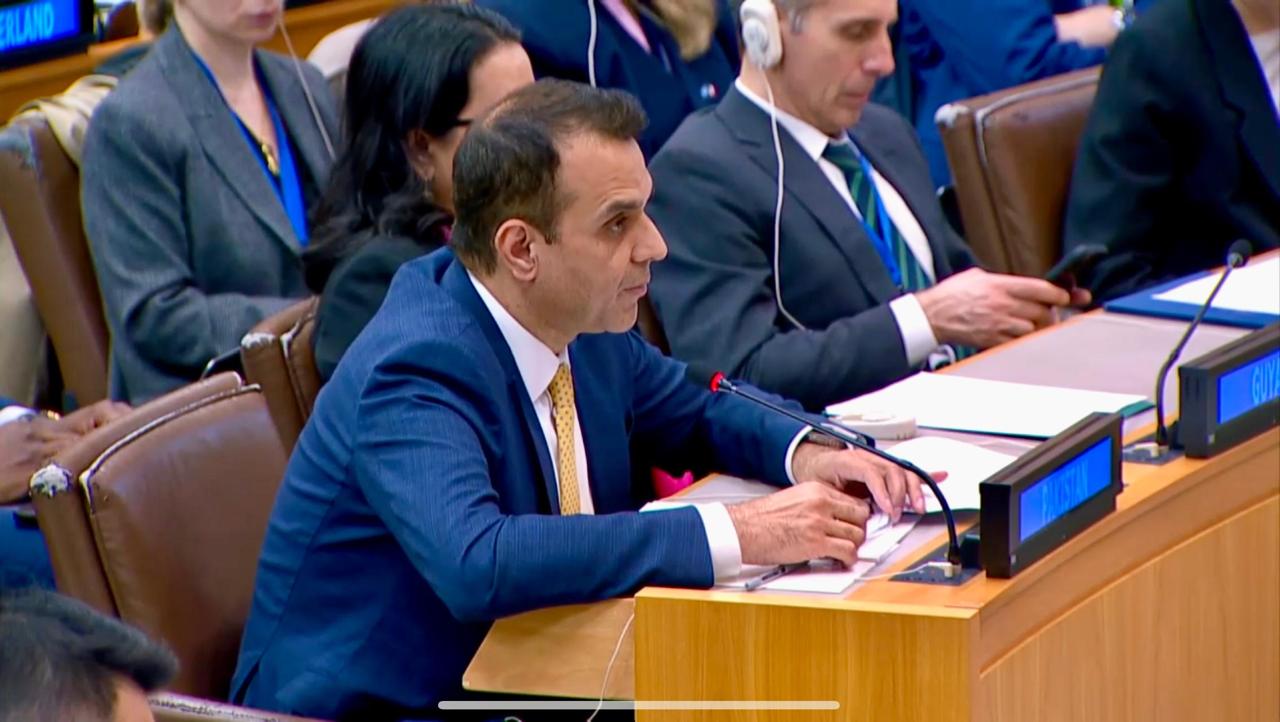Mumtaz Hussain
UNITED NATIONS: Pakistan has issued a strong warning to the international community over India’s unilateral suspension of the Indus Waters Treaty (IWT), describing the move as a serious violation of international law and a threat to regional peace and humanitarian stability.
Speaking at a United Nations Arria Formula meeting on “Protecting Water in Armed Conflict,” Pakistan’s Deputy Permanent Representative to the UN Ambassador Usman Jadoon condemned what he called India’s attempt to weaponize water as a political tool. The session, convened by Slovenia, focused on safeguarding water resources and infrastructure during armed conflicts.
Ambassador Jadoon accused India of seeking to “starve the people of Pakistan,” citing provocative statements made by Indian leadership. “These remarks reflect a dangerous and perverse mindset,” he said, emphasizing that rivers governed by the treaty are essential for the survival of 240 million Pakistanis.
He urged India to reverse its “unlawful” actions and comply with its legal obligations under the 1960 treaty, which governs the sharing of waters from the Indus River system between the two countries. “We will never accept any such moves,” Jadoon stated firmly.
The Pakistani envoy called on the UN Security Council to take notice of such violations of international law, including breaches of International Humanitarian Law (IHL), and to act preventively before the situation leads to a humanitarian catastrophe.
Highlighting the legal framework, Ambassador Jadoon said that international law and UNSC resolutions prohibit attacks on water infrastructure and denial of access to water resources. “All parties to a conflict are bound by IHL and must refrain from actions that have severe humanitarian consequences,” he added.
He concluded by warning against the broader implications of politicizing water resources, stating that such actions not only endanger bilateral relations but also threaten regional peace and global security.
The Indus Waters Treaty, brokered by the World Bank in 1960, has long been considered a cornerstone of water cooperation between India and Pakistan, even surviving multiple wars and political tensions. India’s recent move to suspend the agreement has sparked widespread concern over the future of water security in South Asia.


Comments are closed.